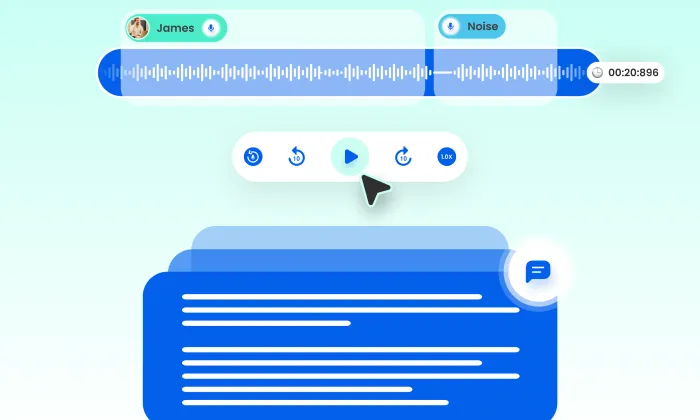Is it possible to collect in-car speech datasets for specific car brands or interior layouts?
Speech Datasets
In-Car Audio
Voice Recognition
Imagine a car's voice assistant effortlessly understanding commands, even amidst the hustle of city traffic or the soothing hum of an open highway. The secret sauce? Mastering environmental variables in in-car speech datasets. This guide delves into how such variables can be queried and controlled, significantly enhancing AI systems for automotive applications.
The Necessity of Tailored In-Car Speech Data Collection
In-car environments are acoustically complex, with background noise from engines, road surfaces, and passenger interactions impacting speech clarity. This complexity necessitates specialized datasets for AI models to function effectively in real-world settings:
- Acoustic Complexity: The interior acoustics vary significantly across car models, influenced by layout, materials, and microphone placement. Collecting data specific to each brand or configuration helps improve AI accuracy tailored to these environments.
- User Experience: Automakers are increasingly investing in voice-enabled systems for navigation, entertainment, and vehicle control. Tailoring datasets to specific brands ensures that these systems can accurately interpret user commands, enhancing user satisfaction and safety.
Methodological Framework for Effective In-Car Speech Dataset Collection
Collecting in-car speech datasets involves a structured Speech Data Collection methodology to ensure both quality and relevance:
- Diverse Driving Conditions: Data is gathered from vehicles in various conditions such as urban, highway, and rural settings. This diversity ensures robust training datasets for AI models.
- Speaker Diversity: Recordings include multiple speakers from different seating positions, covering various demographics. This captures a wide range of accents, speech rates, and emotional tones, enriching the dataset.
- Microphone Placement Variability: Different microphone placements (e.g., dashboard, headrest, handheld) introduce distinct acoustic profiles. Metadata about these placements enhances dataset utility for nuanced speech recognition training.
- Comprehensive Annotation: Each audio sample is meticulously annotated with metadata such as speaker role, age, gender, noise levels, and intent tags. This detail allows for advanced filtering and targeted training.
Our process is further supported by the Speech Data Collection Platform, Yugo for streamlined data acquisition and management.
Tailored Solutions for Automotive Brands
- Luxury Vehicle Voice Assistants: A luxury electric vehicle manufacturer can utilize in-car speech datasets to develop multilingual voice assistants that understand commands across dialects and emotional contexts, enhancing personalization and user satisfaction.
- Autonomous Taxi Services: Companies deploying autonomous vehicles can refine their AI models for emotion recognition using speech data collected in high-traffic conditions, allowing AI to respond appropriately to passenger emotions.
- Custom Dataset Solutions: Tier-1 automotive suppliers seek custom datasets aligned with specific vehicle models, enabling the development of real-time navigation systems that accurately respond to user commands, enhancing safety and usability.
Navigating Challenges and Best Practices
While collecting in-car speech datasets offers immense value, it requires addressing several challenges:
- Acoustic Variability: Ensuring datasets reflect a range of acoustic conditions is critical. Over-reliance on clean or synthetic data can lead to model biases and poor real-world performance.
- Quality Control: Implementing a robust quality assurance framework is essential, including validation of recordings, annotation accuracy, and privacy regulation compliance.
- User Privacy: Data collection must prioritize user consent and anonymization to comply with GDPR and other regulations, safeguarding sensitive information while providing valuable insights.
Future Trends and Innovations
As AI technology continues to advance, the collection and application of in-car speech datasets are evolving:
- Multi-Agent AI Systems: Developing systems capable of interacting with multiple passengers simultaneously, enhancing conversational capabilities.
- Emotion-Rich Dialogue Data: Expanding datasets to include emotional dialogue, enabling AI to empathize more effectively with users.
- Federated Learning: Utilizing live data feedback to continually improve models without compromising user privacy.
Partnering for Success
To harness the potential of in-car speech datasets for specific car brands or layouts, collaboration with expert data partners like FutureBeeAI is vital. Our tailored solutions and methodologies ensure high-quality, diverse datasets that drive innovation in automotive AI systems. By investing in robust data collection frameworks, companies can enhance AI model performance, leading to better user experiences and increased satisfaction.
For automotive projects requiring domain-specific speech data, contact us to get tailored datasets in just a few weeks, positioning your brand at the forefront of AI innovation in the automotive industry.
What Else Do People Ask?
Related AI Articles
Browse Matching Datasets
Acquiring high-quality AI datasets has never been easier!!!
Get in touch with our AI data expert now!








